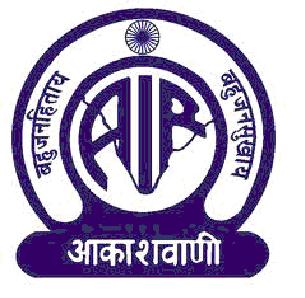*Image Credit: Wikimedia Commons One of the largest broadcasting companies in the world got its start with a handful of programs pushed out over the air in Mumbai on July 23, 1927. The Indian Broadcasting Company (IBC) began operating the first of its two stations in the capital of Maharashtra with shows from local radio clubs – the second would arrive a month later in Kolkata. Three years later, upon government intervention, it would be reborn and grow into a behemoth creating original shows in 23 languages and 146 dialects. The beginnings of All India Radio (AIR) are remarkable – the IBC started at the Bombay Presidency Radio Club, a small sporting group located in the Colaba district of Mumbai. Though other organizations had created small broadcasts as early as 1921, it wasn’t until 1923 that licenses were issued for the clubs that would come to fill airtime on IBC. Four years later, after securing funding from a variety of sources and receiving a permit for two stations, the IBC began its broadcast at 6pm on July 23, 1927. E. F. L. Wood, the Lord Irwin and then-Viceroy of India, opened the auspicious occasion with words befitting the IBC’s big moment: “I have little doubt that, before many years are past, the number of its audience will have increased ten-fold and that this new application science will have its devotees in every part of India.” Though the technology would eventually reach 99 percent of the Indian population, the stations in Mumbai and Kolkata were unable to turn much of a profit. After less than three years in operation, the government opted to take over the stations and rename them the Indian State Broadcasting Service (ISBS) – an interim decision that would become permanent in May 1932. Four years later, the ISBS was renamed All India Radio and began growing rapidly. First focusing on India itself, the British-led colonial government began an External Service in 1939, hoping to counter German propaganda spilling into the Arab nations. When the nation gained independence in 1947, the network reached less than 300,000 radios in its six stations – Dehli, Chennai, Lucknow and Tiruchirappalli had been added to the original two. Nicknamed Akashvani, or “celestial announcement,” after a term coined by a private broadcaster working from his own residence in the 1930s, AIR now reaches more than 100 countries, including well into China, Russia, the Middle East and Southeast Asia. As India blossomed under self-government throughout the 1950s, the Vividh Bharati service became the most popular. Featuring news mixed in with dramatic productions, comedies and motion picture scores, it reaches each of the large cities on a different frequency. Today, 277 stations cover more than 92 percent of India’s land mass, a far cry from reaching only one person in ten just six decades ago.
July 23, 1927 CE – The Ancestor of All India Radio Hits the Airwaves in Mumbai
*Image Credit: Wikimedia Commons One of the largest broadcasting companies in the world got its start with a handful of programs pushed out over the air in Mumbai on July…
265
